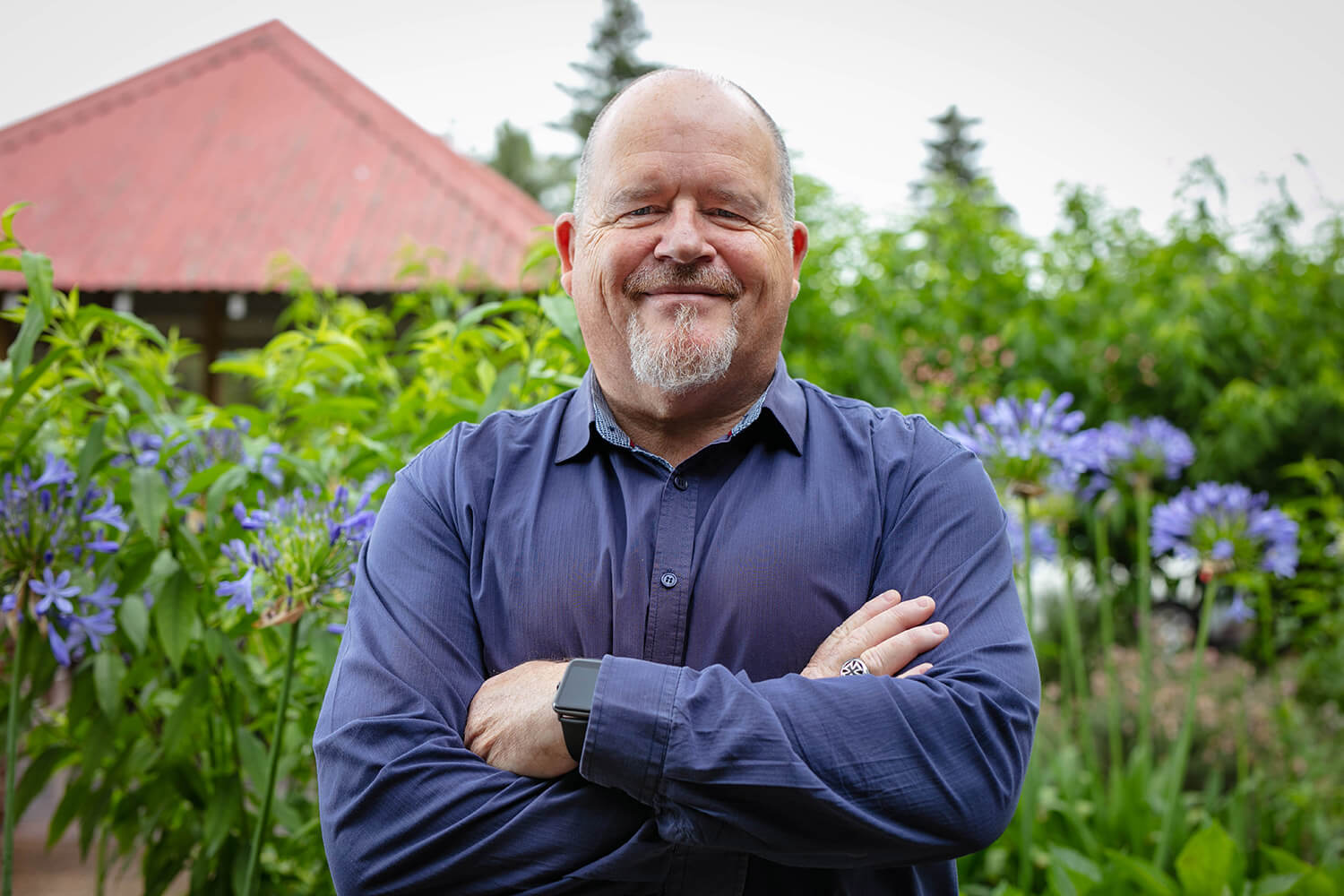
Offering a friendly chat or a deeper conversation, Michael creates a space for people to work through their emotions. When Michael describes his every-day role, the unmistakable passion in his voice is enough to fill anyone with excitement. And underneath the calm exterior, you’ll find a deeply spiritual person who works hard to embrace the light and overcome the dark in his own world.
What does it mean to be a Chaplain? For Michael Turner, it means being a safe and trustworthy person who is prepared to meet people where they are.
Beginning his career at the Nepean Hospital four years ago, Michael was soon asked to spend his days ministering in the Mental Health wards. Although initially hesitant, he agreed, and began a meaningful role that presented new challenges and profound fulfilment. Today, his daily conversations can range from a simple check-in to delving deep into a patient’s trauma.
“People invite me into their world, which often involves pain, loss and fear,” Michael says. “A Chaplain needs to have courage to go where the patient leads. I can’t be afraid of the darkness of another person’s world. My task is to join them there and let them know they’re not alone. I remind them God hasn’t forgotten them. God is the reason I’m sitting here with them.”
Michael readily admits his limits. He’ll tell you he can’t fix cancer, mental illness, or the loss of a child. But what he can do is sit with people. In a rushed world that often wants to look for quick fixes, Michael provides a place where people can slow down and reflect.
Behind the scenes, Michael understands the necessity of taking care of his own needs first. Compassion fatigue and burnout are real risks in this line of work. So, Michael believes Chaplains should focus on taking care of themselves – not only by practising self care, but by doing the work to unpack their own emotions.
“In order to be an effective Chaplain, you must have the courage to face your own darkness. It’s hard work to face your own inner self and be completely understanding and accepting of that. But how can you expect to sit with another person’s trauma if you can’t even face your own emotional baggage?”
While Michael has had a strong faith his whole life, he hasn’t spent his entire career as a Chaplain. Previously, he worked in an unrelated role, and felt discontent with the impact he was delivering. With less than two decades left of his working life, he realised it was time for a leap of faith. So, Michael decided to embark on a six-year degree in Theology. With three young children, it was a challenging decision. But with the support of his wife, Michael finished the degree one year earlier than scheduled. Now, he’s found a role that’s full of meaning – and he’s never looked back.
When the manager of the Pastoral Care Department, Cathy Gault, asked Michael to start visiting patients in the mental health wards just one year after he first joined Nepean Hospital, his immediate instinct was dread. In retrospect, this initial response was based on an assumption that couldn’t be further from the truth.
“My expectations of mental health patients were based on a lot of stereotypes and not a lot of knowledge,” Michael recalls. “In reality, I discovered a wonderful treasure here. Mental health patients are loving, honest, and appreciative people. And importantly, they’re faithful. If people knew how fulfilling this role is, Catholic Care would be swimming in applications.”
Michael splits his time between the Nepean and Cumberland Hospitals. His experience across the two locations can differ, but most of his conversations with patients start as a social chat. If they express a desire to continue talking, Michael builds rapport quickly with a non-anxious presence and empathy. In return, patients tend to open up quickly, which Michael puts down to a phenomenon called the “intimate stranger”.
“People have nothing to lose with me. We don’t have any pre-existing history, and they’ll often never see me again. So, they’ll find themselves sharing things they had no intention of revealing. It could be something that happened decades ago. They’ve been carrying this trauma inside for all this time. Sometimes, I see a physical transformation right before my eyes. They look younger and unburdened. I consider it a wonderful privilege to be brought into that space.”
Now a few years into his role, Michael’s journey has resulted in professional, personal, and spiritual development. Finally in a career he can be truly passionate about, Michael looks forward to many more years ministering in mental health wards.
“I feel like I’m walking more closely with God. The parable of the lost sheep teaches that God has always sought people on the margins. And patients in the mental health wards are often living on the margins of society. I’m grateful to have this opportunity to go amongst them as a Catholic and take the love of God with me. If I won the Lotto, I would continue to work with Catholic Care. I love it. Until God has other plans, this is where I’ll stay.”